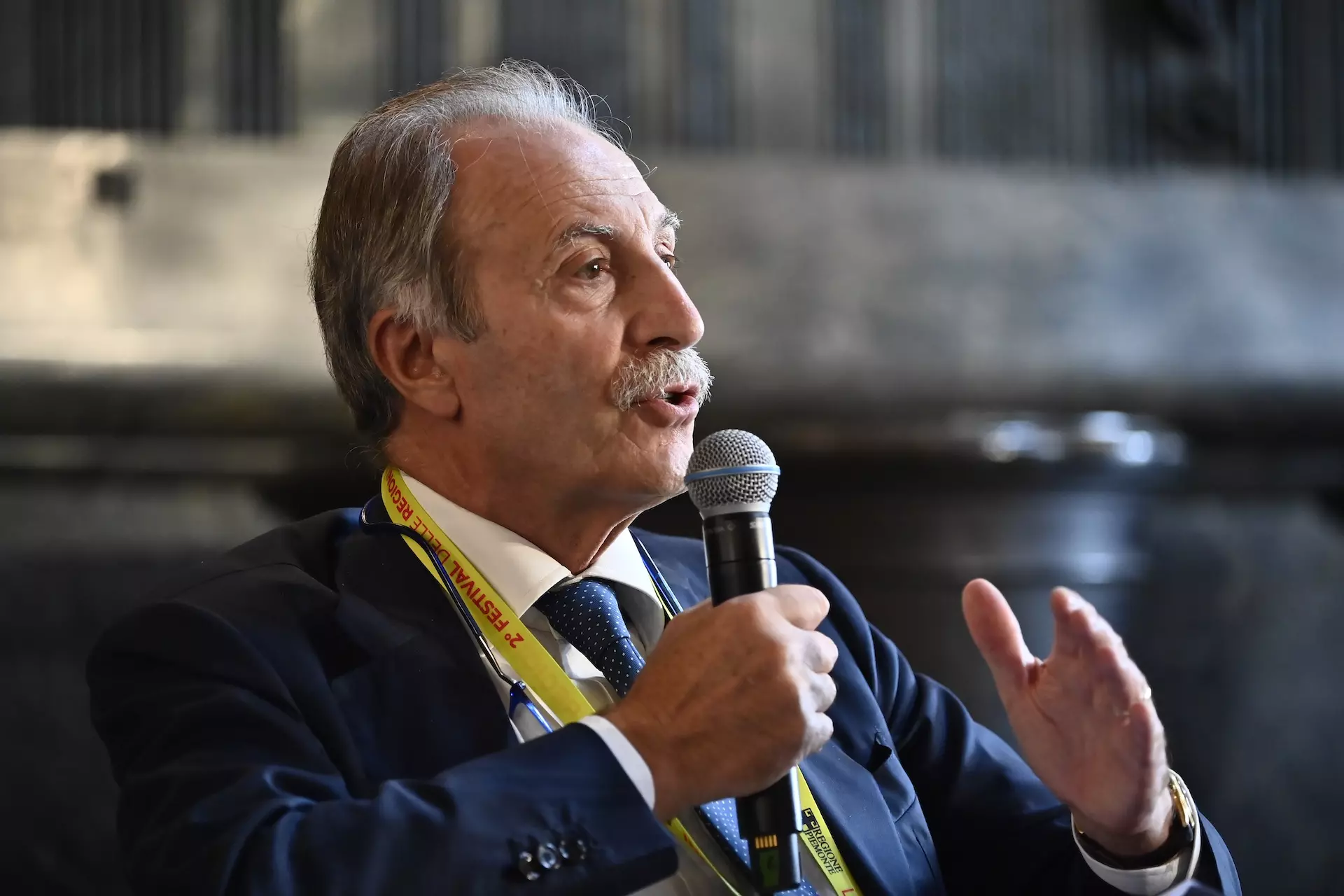https://www.lifegate.it/basilicata-petrolio-2068
- |
- Eleven days after the expiry of his mandate, the outgoing president of the Basilicata Region Vito Bardi grants an extension to Total to continue extracting oil in the Tempa Rossa field.
- On 21 and 22 April 2024 we will vote to elect the new regional council.
On April 5, the regional council of Basilicata, under the leadership of Vito Bardi, he decided the renewal of the concession for the next four years of the exploitation of the Tempa Rossa oil field, thus extending the authorization until 2028.News that distresses those who have been fighting against the extraction and processing of oil for years.But what is of greatest interest and concern is the prediction of a much longer extension:if the plans of the Region and the companies involved, Total, Shell and Mitsui, go as expected, oil extraction in Basilicata could continue until 2068, 18 years after 2050, the deadline set by the European Union to complete the ecological transition which requires the elimination of gas emissions produced by fossil energy sources.

Who (and where) extracts oil in Basilicata
The concession for the exploitation of Tempa Rossa was granted in 1999, and after a long bureaucratic process and investments, the extraction operations actually began in January 2021.Total, in its extension plan, proposes to dig two new wells, called Gregolane 3 and Gregolane 4, expecting a supply of 34 million barrels of oil.
The Tempa Rossa field extends over a vast territory that includes the municipalities of Corleto Perticara and Gregolane, with a total surface area of just over 290 square kilometers.The concession involves excavation and drilling operations over this vast area, with oil processing facilities occupying it a surface area of approximately 190 thousand square metres.
The discovery of oil in the Sauro valley dates back to 1989, when the Belgian company Fina, subsequently acquired by the French Total, identified the field for the first time, even though awareness of the existence of oil in Basilicata was already widespread since the beginning of the twentieth century.In addition to Tempa Rossa, the region hosts another important field called Val d'Agri, with 27 wells, of which twenty are owned by Eni and seven by the British multinational Shell.In 2021, Eni she was convicted in first instance to compensate the Region for damage from spills into the environment.
Both fields process crude oil extracted from the ground in plants called “oil centres”, where oil, LPG and gas are refined.The methane collected during extraction, however, is channeled into the distribution network and given free of charge to Basilicata.In fact, an agreement signed between the Region and the oil companies in August 2022 predicts that producers make 200 million cubic meters of gas available to Basilicata per year until 2029 in exchange for the extension of extraction activities.This too, therefore, could have led to the recent choice of Vito Bardi's council to renew the concessions on oil extraction.
So Italy continues to slow down the transition
In the extension request presented in July, Total wrote that "cultivation" of the field is foreseeable "over a period of time extending up to 2068".Furthermore, the document approved by the Region provides significant costs to keep the plants running of Tempa Rossa until 2068:between 100 and 120 million euros per year until 2048 and between 65 and 75 million euros per year from 2049 until 2068.As regards royalties, i.e. the proceeds from concessions that the company must pay to the Region based on how much crude oil is extracted, it is estimated that they will be between 20 and 60 million each year, for a potential total of 1.4 billion euros until 2068.
However, it remains to be seen whether the potential economic benefits will offset the long-term social, environmental and economic impacts of this decision.On this point the debate was not long in coming:while on the one hand there are those who highlight the economic and employment benefits deriving from oil extraction, on the other environmental concerns and criticism regarding continued dependence on fossil fuels in a context of growing environmental awareness and energy transition.
Finally, the approval of the extension of the concession it occurred eleven days after the deadline of the regional council's mandate, raising questions about the timing and transparency of the decision-making process.With regional elections scheduled for April 21st and 22nd, the issue of oil extraction becomes a central theme of the electoral campaign.
